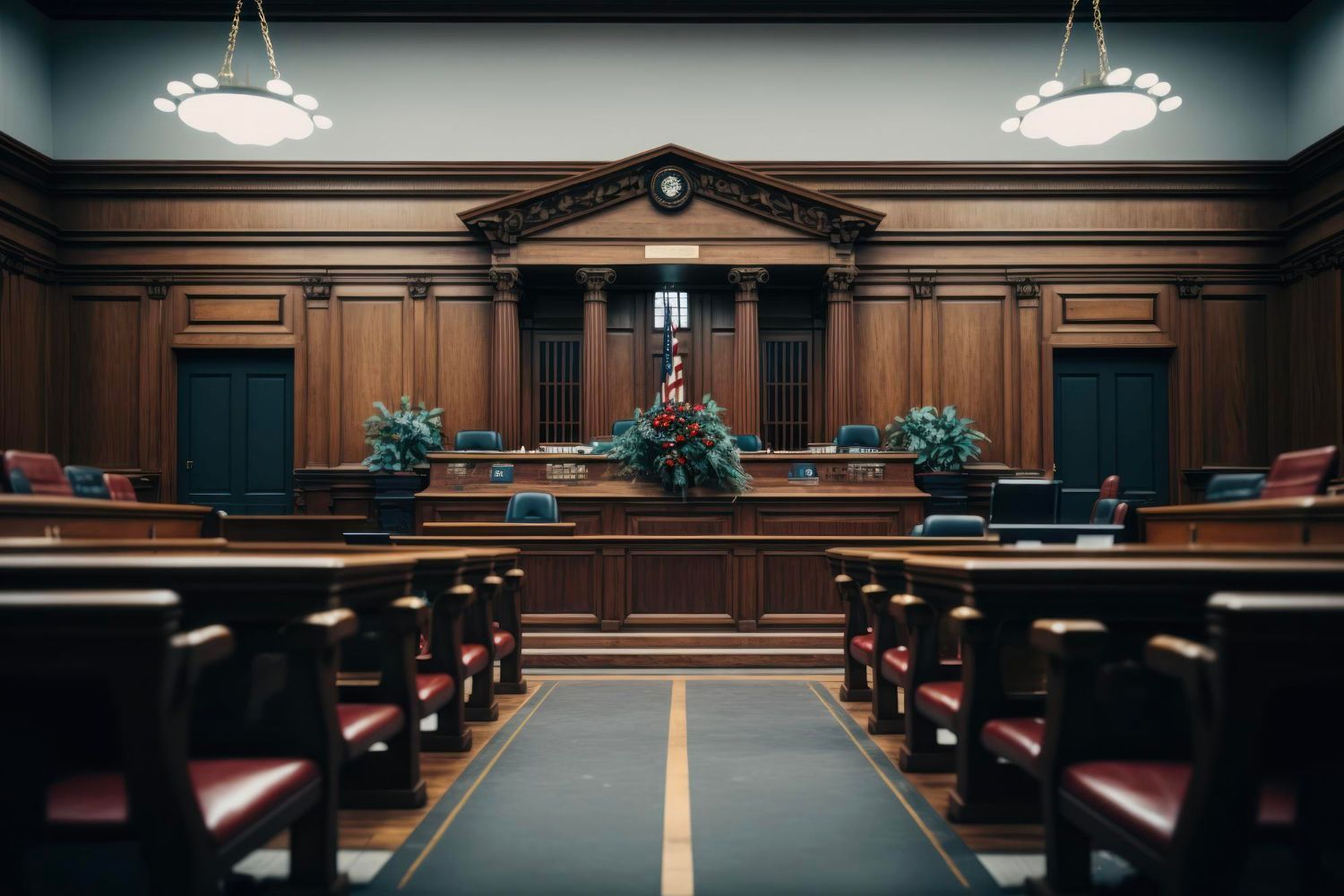How Many Times Can a Felony Case be Reset? All You Need To Know
Written by Law Office of Rolando Cantú, reviewed by Rolando Cantú
How Many Times Can a Felony Case be Reset? All You Need To Know
The criminal justice system is a labyrinth of procedures, policies, and deadlines.If one finds themselves ensnared in a situation, facing a felony charge, they enter a realm where the possibility of severe penalties looms - including extended periods behind bars. However, often disregarded yet crucial is the aspect of "resetting" a felony case, which grants valuable time for building and presenting an effective defense strategy. Here's a comprehensive look at why, how, and when felony cases can be reset in Texas, as well as the implications of such actions.
What is a Felony Case Reset?
In felony cases, the term "reset" refers to rescheduling court proceedings. Under specific circumstances, Texas law allows for resets as defense attorneys strive to strengthen their clients' cases. These cases involve thorough investigations, gathering significant evidence, and careful legal planning, which all require time and meticulous attention.
How Often Can a Felony Case be Reset?
In the world of criminal law, a little-known but crucial element is the 'reset' mechanism. This is a procedure that can significantly influence the timeline and outcomes of a case. Resets are essentially 'pauses' granted by the court, allowing the defense or prosecution more time to develop their case. This could be vital in gathering conclusive evidence, negotiating a plea, or refining their trial strategy.
Court-appointed attorneys can usually request up to three resets, while private defense attorneys have the capacity to request one more, totaling four resets. After reaching these limits, any further reset requests need to go directly to the judge, requiring evident justification for the additional delay. If the individual also chooses to have a trial by jury the trial date will be set according to preferential setting trial docket.
The Duration and Consequences of Resets
Once a reset is approved, it generally lasts for six weeks. During this period, any further legal issues can jeopardize your case, including breaching the conditions of your bond. It's crucial to adhere to all legal conditions set by the court during this period, as failing to do so could result in the revocation of your bond.
The reset process is a double-edged sword. While it might prolong the journey to the trial, it can also provide the defendants with sufficient time to craft a compelling defense strategy. Similarly, for the prosecution, it is an opportunity to gather more evidence and build a more robust case.

However, there's no crystal ball to predict the number of times a judge will allow a reset in a criminal case. Therefore, tracking the court proceedings and maintaining a robust communication channel with your defense attorney becomes pivotal.
A key consideration is the potential scheduling of a jury trial after the fourth reset. This means that a trial could be scheduled six weeks after the defendant opts for a jury trial. Alternatively, if the defendant decides to plea, the plea date would be scheduled within two weeks of the reset date.
It's essential to understand that committing another offense while a case is in reset and the defendant is out on bond (even personal recognizance bond) can lead to the bond declared insufficient. This underscores the importance of understanding the implications of resets not just for the case at hand, but for a defendant’s overall legal standing.
Valid Reasons for Resets
Every criminal trial carries its own unique set of circumstances and variables. The complexity of the case, the severity of the alleged crime, the evidence at hand, and the respective strategies of the defense and prosecution all contribute to the need for resets. Valid reasons for resets often include:
- The emergence of new evidence or leads: If new evidence pertaining to the case surfaces or if there are fresh leads to explore, a reset can be requested. This provides both the defense and prosecution teams sufficient time to study this development and consider its impact on the case.
- A vital witness or expert is unavailable due to medical reasons: The absence of a critical witness or expert due to illness or other medical conditions can also warrant a case reset. Their testimony or input can be crucial to the case, and it's important they're present to deliver it.
- Key evidence has yet to be reviewed or analyzed: If primary evidence hasn't been thoroughly reviewed or analyzed, a reset request can be made. This gives the involved parties the time necessary to understand the implications of the evidence on the court proceedings.
Advantages of Resets in Building a Strong Defense
Contrary to popular belief, resets are not merely a stalling tactic but can offer genuine benefits. This period allows your defense attorney to:
- Conduct a comprehensive investigation into the allegations against you.
- Gather vital records, videos, and documents that can be used as evidence.
- Interview witnesses to examine inconsistencies and potential defenses.
- Explore various defensive strategies to challenge the prosecution's case.

Types of Felony Charges in Texas
In the state of Texas, felonies are classified into five distinct categories, each carrying its own specific set of penalties. These categories are designed to reflect the severity of the offense, ranging from the least severe to the most serious.
- State Jail Felonies: State jail felonies encompass non-violent offenses, specifically certain types of theft and drug possession. Although not considered violent crimes, they carry significant legal consequences and can have enduring impacts on individuals' lives. Imprisonment in state jail facilities for a defined period often follows these serious offenses. Understanding the severity of such crimes and their potential implications is crucial for both individuals and communities.
- Third-Degree Felonies: Third-degree felonies encompass various offenses, notably including repeat DWI charges and certain types of assault cases. These crimes are deemed severe and carry significant legal consequences. Conviction of a third-degree felony can lead to substantial fines, extended probation periods, and even imprisonment.
- Second-Degree Felonies: Second-degree felonies are serious charges that encompass offenses such as aggravated assault, manslaughter, robbery, and other crimes that pose a significant threat to individuals and society. These offenses carry substantial penalties and are considered more severe than lower-degree felonies. It is crucial to understand the gravity of these charges and seek appropriate legal guidance if facing allegations related to second-degree felonies.
- First-Degree Felonies: These crimes, including murder and burglary with assault, are considered the most serious offenses. They carry harsh penalties that emphasize the necessity for strict legal consequences.
- Capital Felonies: In the realm of criminal charges, there exists a distinct and profoundly severe category. It encompasses acts so heinous that they include multiple murders or intentional killings of law enforcement officers. These offenses are regarded as the most egregious and are met with harsh legal penalties, including the possibility of capital punishment in jurisdictions where it is permitted. The gravity attached to capital felonies underscores their significant threat to public safety and emphasizes society's demand for justice when dealing with extreme criminal behavior.
The classification system helps to ensure that appropriate punishment is meted out based on the nature and gravity of the felony committed. By categorizing felonies and assigning corresponding penalties, the legal system in Texas aims to maintain a fair and equitable approach to justice.
Conclusion
If you are facing a felony charge, seeking the expertise of an experienced criminal defense attorney is vital. Skilled lawyers can navigate the complexities of case resets and criminal defense investigations, aiming for the best possible outcome in your case.
For expert legal guidance, do not hesitate to contact The Law Office of Rolando Cantu. With over 15 years of experience in criminal law, they can provide you with the support and guidance necessary to challenge the prosecution’s case and achieve a favorable outcome in your trial. Contact us today for more information about their services or to schedule a consultation.











